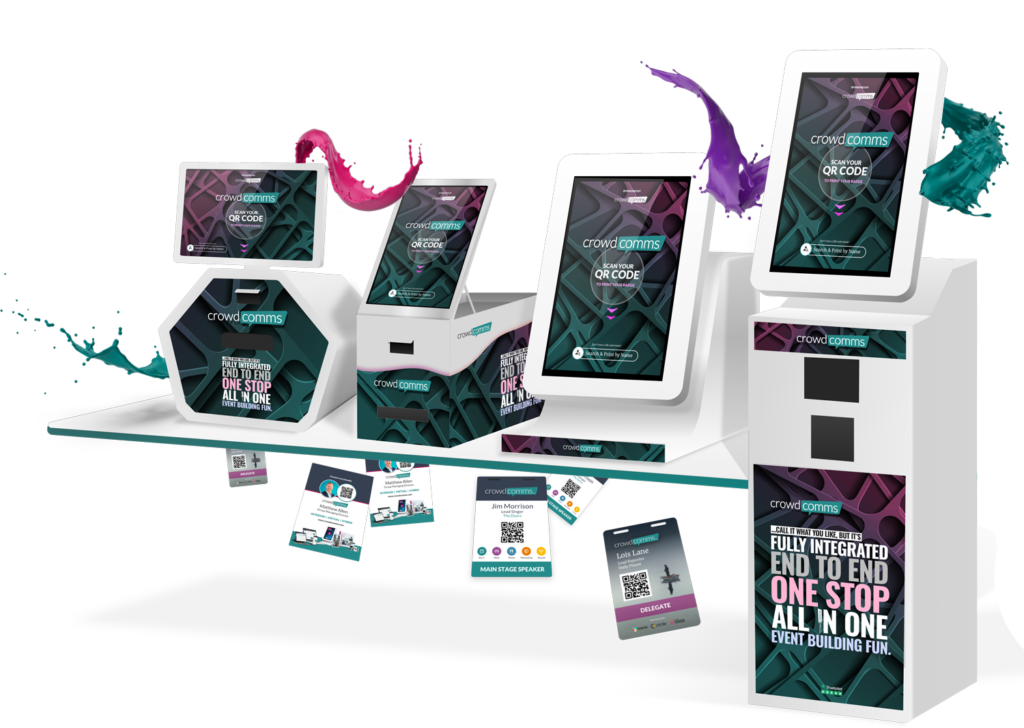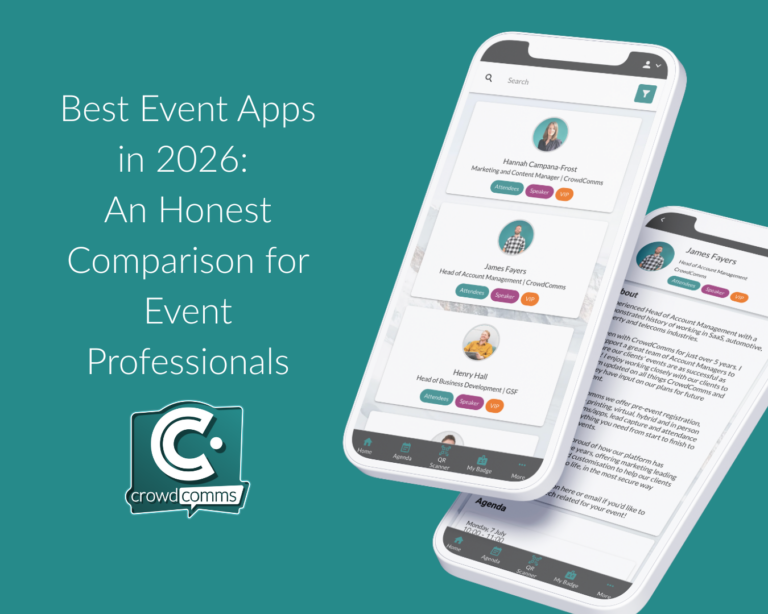
Yet, the way we plan and execute these events has undergone a major transformation in recent years. Matt Allen, CEO of CrowdComms, and Lee Jack, the company’s Commercial Director, recently shared their insights on this evolving landscape during an engaging interview. Exploring everything from post-pandemic trends to the role of event technology, they shed light on how organisations can maximise the impact of their corporate events.
If you’re eager to take your events to the next level, here are some key takeaways from their conversation.
What Defines a Corporate Event?
At its core, a corporate event is any type of gathering funded by an organisation to bring employees, stakeholders, or partners together. These events are designed to align teams around shared objectives, foster synergy within workforces, and encourage networking. From small department-specific meetings to company-wide gatherings with tens of thousands of participants, corporate events are essential for fostering connection and aligning everyone towards a common purpose.
CrowdComms has spent years specialising in internal conferences, which are often the backbone of corporate events. These gatherings connect people across regions and departments, ensuring all cogs in a company are working toward the same goals.
Post-Pandemic Shifts in Event Management
The COVID-19 pandemic disrupted traditional event planning, forcing organisations to experiment with virtual and hybrid formats. While the initial excitement of returning to fully in-person events led to a rush of physical gatherings, the past 12–18 months have revealed a shift back to hybrid and virtual formats.
What’s fueling this trend? According to Matt and Lee, it’s a mix of cost savings, increased reach, and higher productivity. Virtual-only and hybrid setups allow companies to involve more participants from across the globe without requiring extensive travel or accommodations. Additionally, these formats are particularly well-suited for organizations balancing ongoing remote or hybrid workplace structures.
Ultimately, the format of an event should hinge on a few key factors, including audience size, focus, content, and end goals. There’s no “one-size-fits-all” solution, but the right technology can cater to specific needs and tailor the experience for attendees.
The Role of Technology in Enhancing Events
Technology has become the backbone of modern corporate events, enabling flexibility, collaboration, and scalability. For organizations holding hybrid events, technology ensures that virtual attendees are no longer seen as a secondary audience. Instead, everyone receives an equal opportunity to connect, engage, and participate in meaningful ways.
From Single Sign-On (SSO) authentication for a seamless user experience to integrations with existing tech stacks like CRMs, the right event tech can create a smooth and secure process. But beyond convenience, technology allows companies to leverage data in real time, optimise networking opportunities, and maintain long-term engagement beyond a single day’s event.
Lee emphasised that while technology simplifies logistics and improves efficiency, its purpose extends far beyond that. Event tech acts as a vehicle for dialogue, collaboration, and innovation—key ingredients for a successful corporate event.

Reimagining Event Strategies
Corporate organisations are beginning to adopt strategies that extend the value of their events far beyond a single day. Pre-event tasks, webinars, and ongoing community engagement are powerful ways to get participants involved ahead of time, while post-event surveys and on-demand content allow attendees to continue learning and engaging after the event ends.
Eco-conscious initiatives also make their mark on modern events. From paper-free badging to tree-planting campaigns tied to attendee achievements, businesses are strategically incorporating sustainability into their event strategies. These efforts not only align with corporate values but also build enthusiasm and participation among employees.
Practical Tips for Event Success
Planning a successful event requires a combination of creativity, technology, and clear goals. Here are some actionable tips from the discussion to implement for your next corporate gathering:
- Define the Purpose: Before deciding on a format, establish the “why” behind the event. Your goals should dictate whether it’s better suited for an in-person, virtual, or hybrid setup.
- Leverage Data: Utilise surveys and tracking tools both during and after events to gather insights, measure outcomes, and inform future strategies.
- Train Your Team: Ensure organisers fully understand how to implement event technology to maximise adoption and engagement.
- Integrate Seamlessly: Choose tech solutions that integrate with existing platforms for better scalability and efficiency.
- Consider Sustainability: Reflect on the environmental impact of event choices and explore greener alternatives wherever possible.
Looking Ahead
Corporate events are no longer defined by their venues or attendance numbers. Instead, they are shaped by the technology that supports them, the strategies used to engage audiences, and the long-term impact on an organisation’s goals. To truly succeed, businesses need to balance personalisation with scalability, inclusivity with security, and innovation with practicality.
Want to learn more about these transformational trends? Watch the full interview with Matt Allen and Lee Jack for in-depth insights and real-world examples of corporate event success.
Partner with CrowdComms for Unmatched Event Technology
CrowdComms combines cutting-edge event technology with an unmatched focus on customization, flexibility, and client collaboration. Whether planning an internal conference or launching a global hybrid event, our platforms are tailored to meet your goals.
📞 Contact CrowdComms today and discover how we can power your next corporate event. Together, we’ll design experiences that engage, inspire, and deliver exceptional results.

